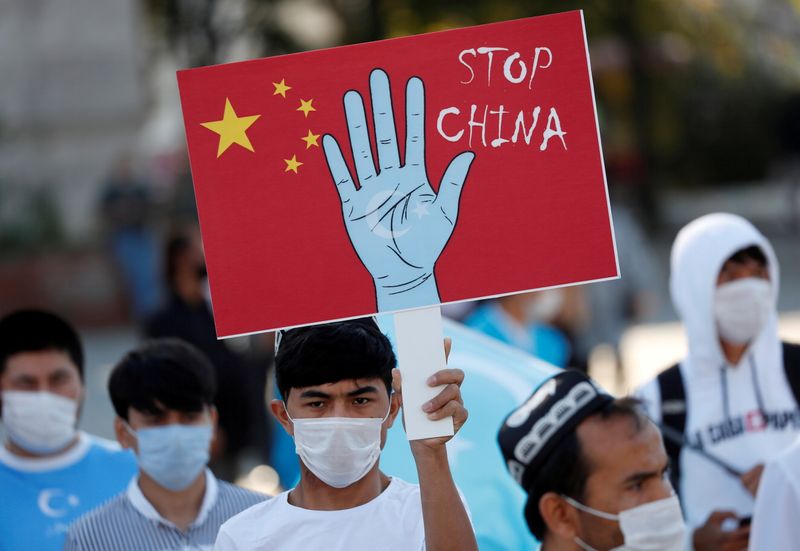BEIJING (Reuters) - U.S. human rights group Human Rights Watch (HRW) laid out in a report on Monday how China's actions in Xinjiang could meet criteria for crimes against humanity, calling for coordinated investigations into "widespread" abuses in the region.
It said there was evidence of ongoing rights abuses targeting Turkic Muslims, which include Uighurs, Kazakhs and Kyrgyz people. China has consistently denied all accusations of abuse in Xinjiang.
"Given the gravity of the abuses against Turkic Muslims, there is a pressing need for concerned governments to take strong, coordinated action to advance accountability," HRW said.
The report was compiled with the assistance of Stanford Law School's International Human Rights and Conflict Resolution Clinic and provides a legal framework for how Beijing's actions in Xinjiang could meet the criteria for crimes against humanity as defined by the Rome Statute of the International Criminal Court (ICC).
UN experts and rights groups say China has detained over a million Uighurs and other ethnic minorities in Xinjiang since 2017 as part of a broad crackdown in the region.
In December, the ICC said it would not pursue an investigation into the mass detentions because the alleged crimes took place inside China, which is not party to the court.
China has said it will not join the court because its statutes violate national sovereignty and its processes are open to political interference.
However, the HRW report says that national government prosecutors could individually or collectively conduct preliminary investigations similar to the ICC, and facilitate sanctions or prosecutions against individuals involved.
It encouraged states to utilise universal jurisdiction laws, sanctions on companies linked to Xinjiang and UN complaints mechanisms to pressure Beijing based on their findings.
It also recommended the launch of a UN-mandated commission of inquiry to investigate China's policies in the region.
Several Western governments have levied sanctions over alleged rights abuses against China, which has said it will not allow an independent investigation into its programmes in Xinjiang.
Chinese officials initially denied the mass detentions, but have since said people were participating in voluntary vocational training and de-radicalisation programmes, and they have since "graduated".
In March, the European Union, United States, Britain and Canada imposed sanctions on Chinese officials over alleged human rights violations in Xinjiang. China responded with corresponding sanctions on several lawmakers, researchers and institutions.
HRW cited instances of enforced disappearances, labour transfers, sexual violence and other abuses based on evidence including witness testimonies, government documents and media reports.

Beijing has called Uighur witnesses abroad "actors" and says efforts to investigate Chinese policy in Xinjiang are led by "anti-China forces", primarily in the United States.